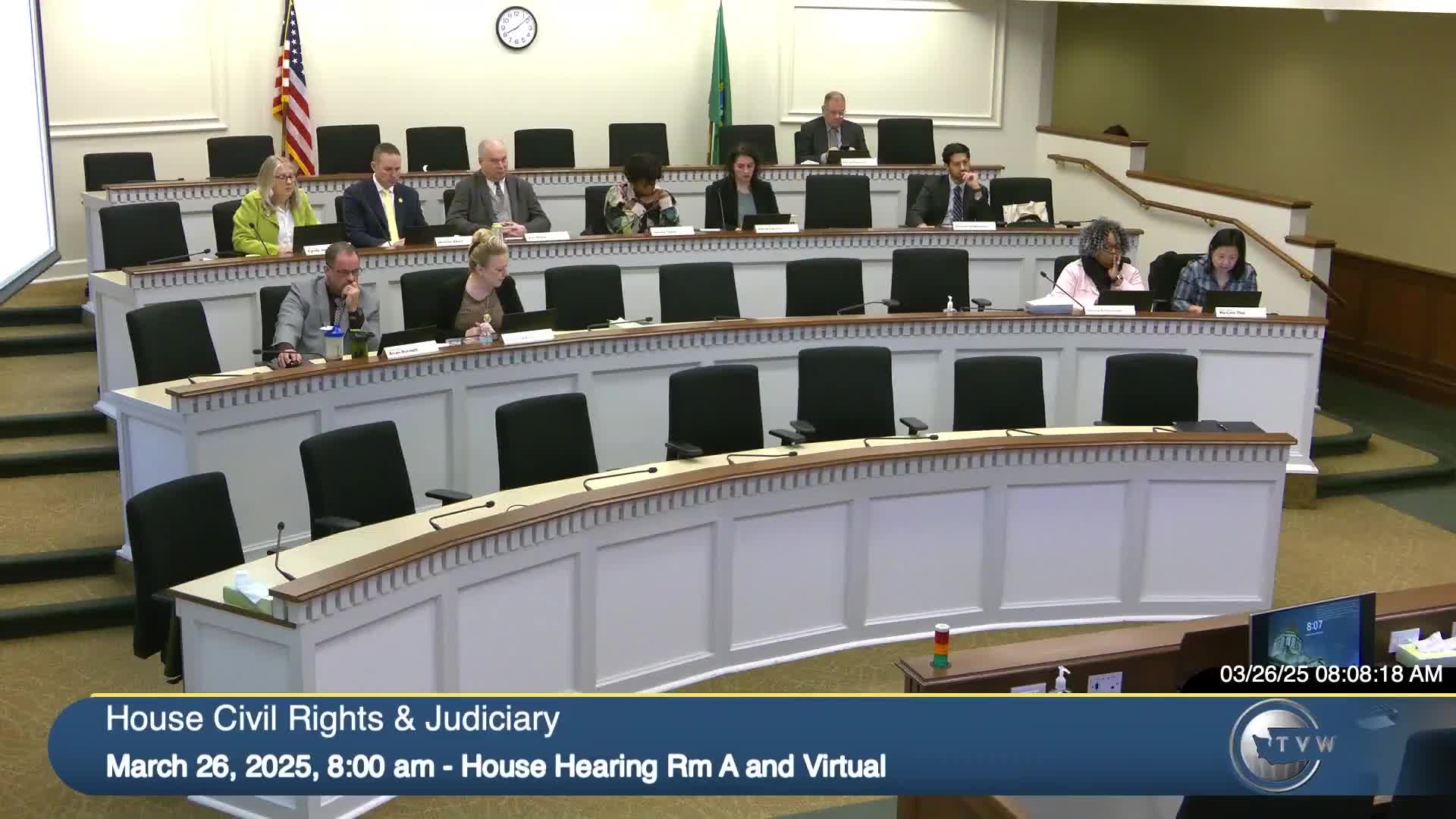Article not found
This article is no longer available. But don't worry—we've gathered other articles that discuss the same topic.
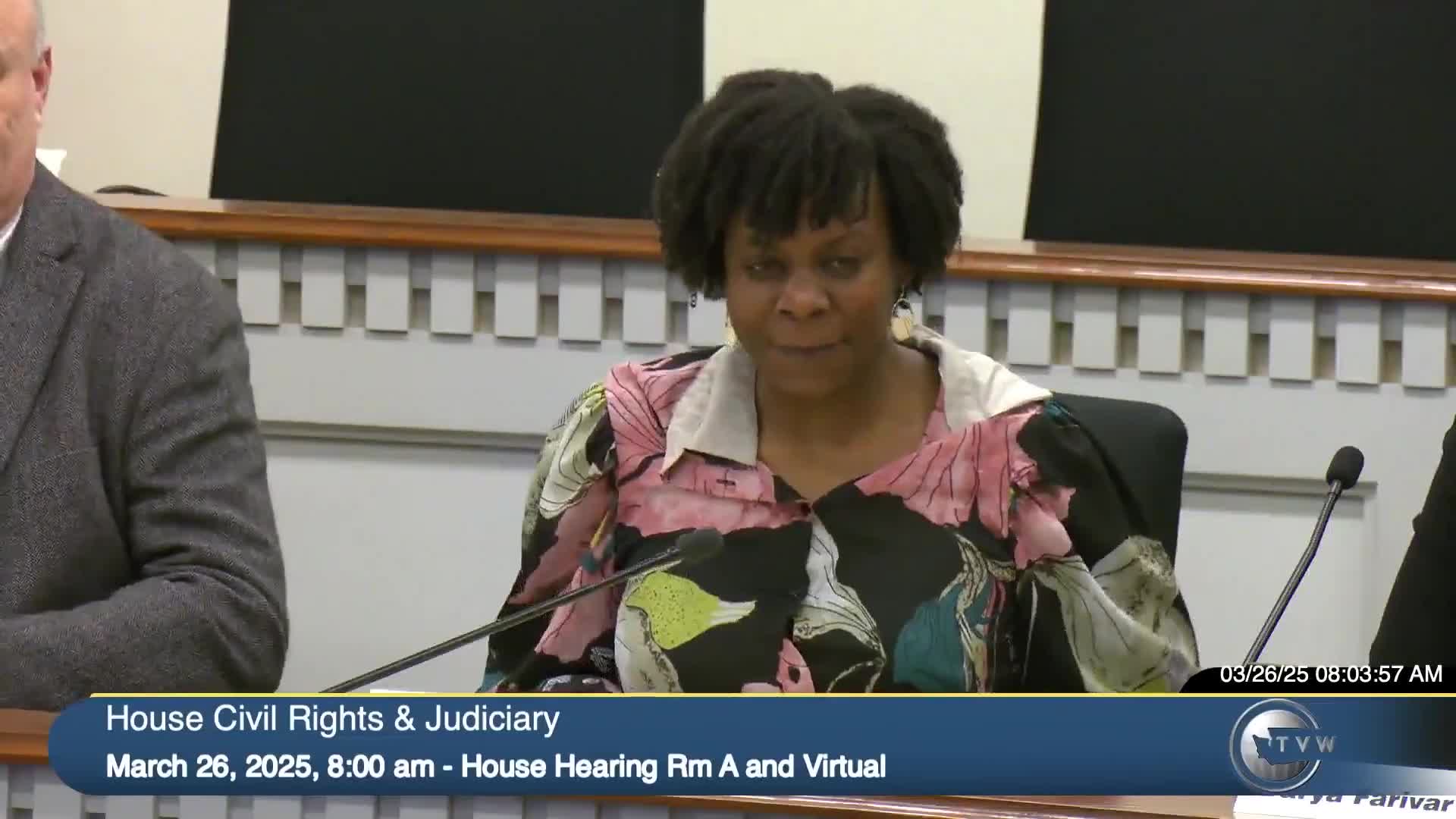
Committee reports weapons‑in‑public‑places measure after marathon amendments; final vote 8‑5
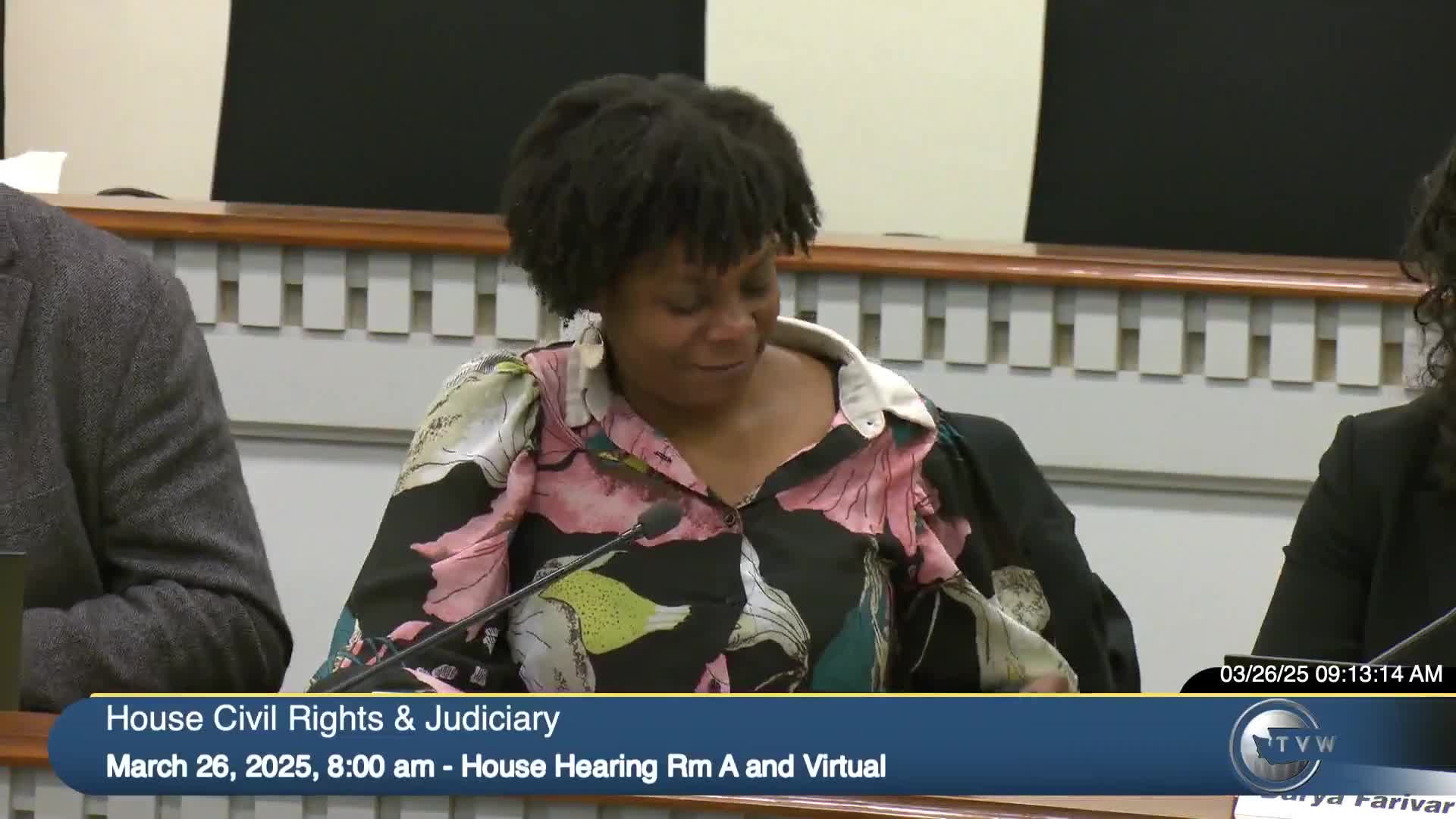
Committee adopts amendment and reports bill allowing former owners a right to repurchase eminent‑domain land
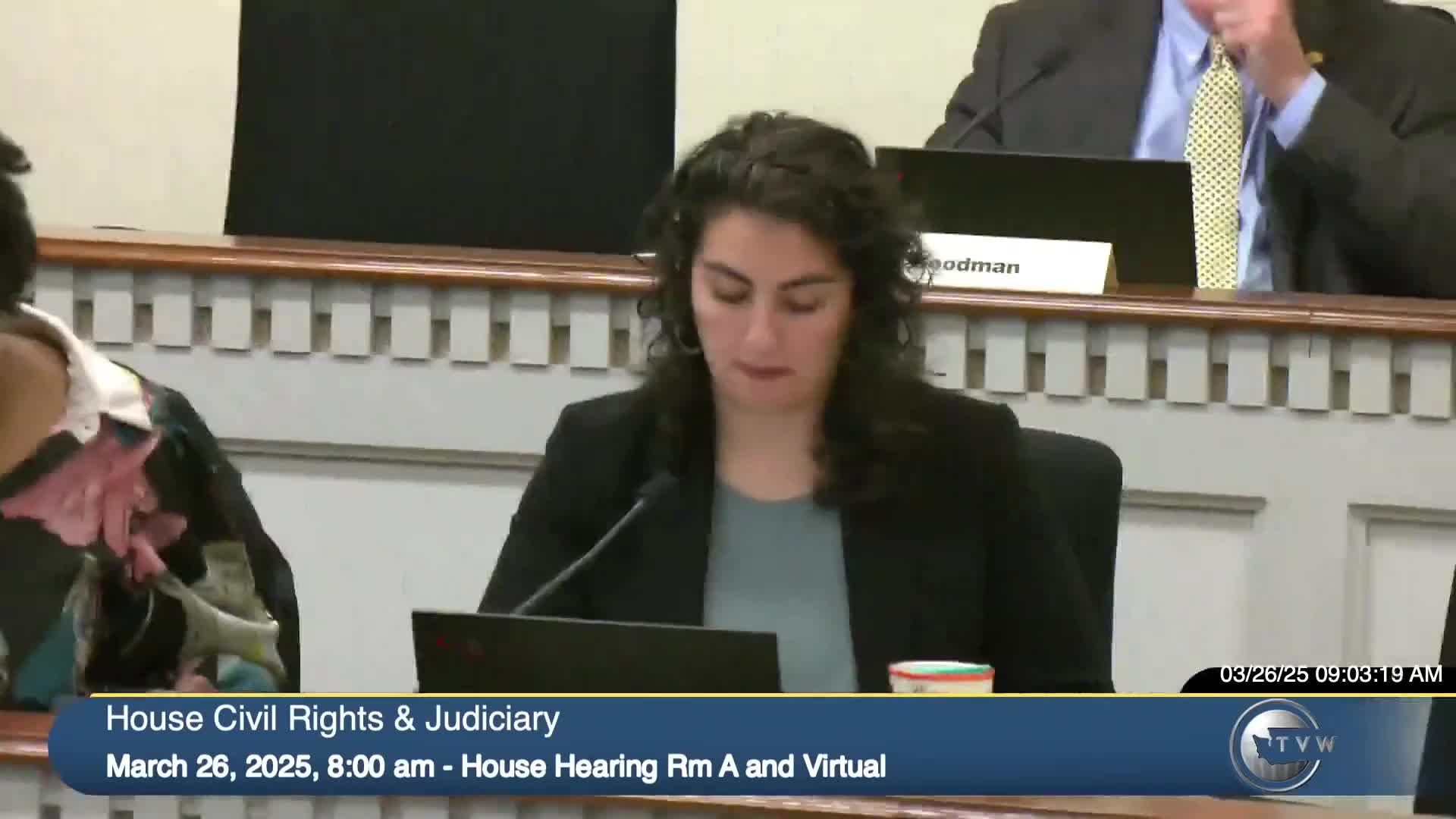
Committee advances changes to child‑hearsay law after narrow votes and an adopted clarifying amendment
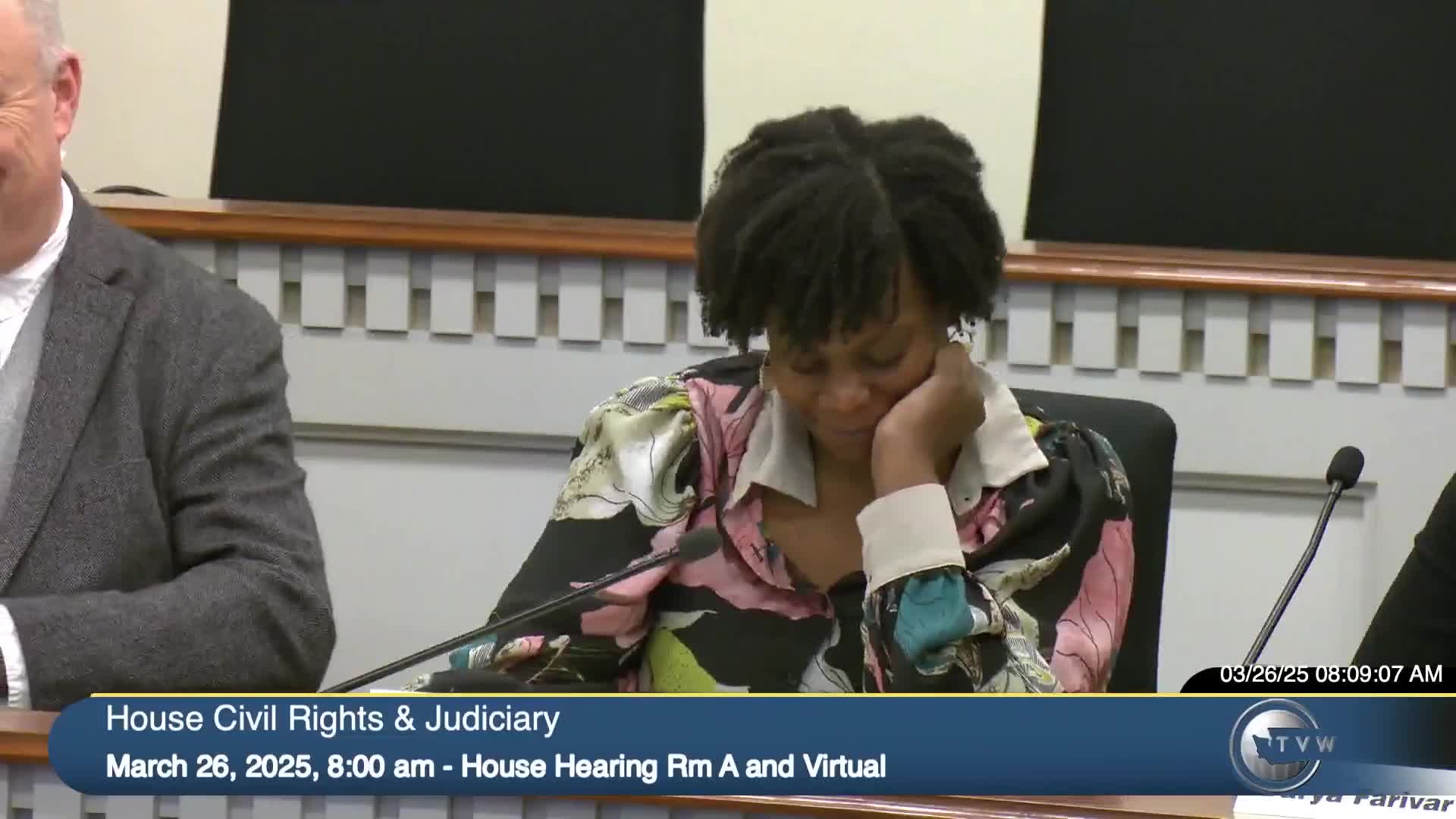
Committee backs changes to debtor‑property exemptions after contentious amendment fight
